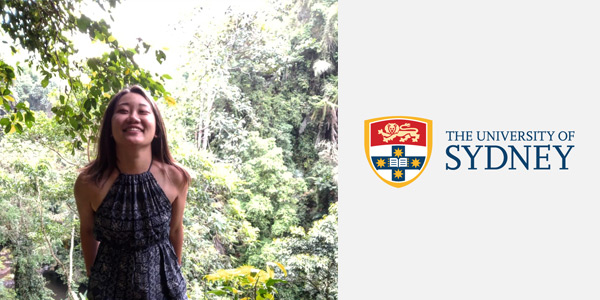Jiyao Joanna Ge is a New Colombo Plan Mobility Grant recipient from the University of Sydney. Joanna completed the Indonesian Business, Law and Society Program at the Islamic University of Indonesia in Semester 2, 2018.
Q: Why did you decide to undertake ACICIS’ Indonesian Business, Law and Society Program?
Studying in Indonesia would not have been possible without the help from ACICIS. I came across the IBLS program in a Facebook advertisement one semester prior to my exchange (which was an extremely last-minute decision) and was fascinated by the type of opportunities provided such as exchange at UII, language classes and an internship.
Q: Did you receive a New Colombo Plan Mobility Grant or Scholarship? If so, how did this contribute to your experience in Indonesia?
Yes, I have received a New Colombo Plan Mobility Grant and an Internship Grant for taking up internship in Indonesia. These grants allowed me to have a much more fruitful experience here in Indonesia without having to be too concerned about my financial situation.
Q: What classes/units are you currently enrolled in?
- Development Economics – It is an independent studies course arranged by UII upon request, where I conduct one-on-one weekly lessons with my professor. Even though my professor is greatly renowned in the field of monetary economics, unfortunately he did not specialise in development economics. I was required to make summaries on each chapter and present weekly. This has both negative and positive aspects. On the plus side, I was able to learn the material from a much deeper understanding; however, it did consume an enormous amount of time, which could otherwise be spent on enjoying Indonesia.
- Institutional Economics – This class had given me roller coaster type of experience, from frequent class kosongs (last minute cancelled classes) to interactive content delivery. At times there were slight language barriers between me and the lecturer which slowed down the class in comparison to USYD.
- Natural Resources and Environmental conomics – weekly classes consisting of discussions and presentations from students. I had high expectations from the lecturer to learn about Indonesia’s perspective on nature and resources, however, to my surprise, the most intriguing information stemmed from discussions with classmates.
- Mathematics for Business and Economics – class offered by the Faculty of Accounting, thus more students and a more responsible professor. Class content was fundamental, mainly targeted towards junior students. To assist their learning, my professor decided to deliver the class in 80% Indonesian.
- Bahasa Intermediate – an Indonesian language class outside of UII’s Faculty of Economics, as part of CILACS UII. A class designed for Bahasa Indonesia learning. I was the only student in class (again). It’s just an experience you need to adjust yourself to and try to build personal connection to prove to your lecturer/teacher that you are committed to learn more in hope they will be more encouraged to teach.
Q: How would you describe your in-country study experience so far, particularly studying at UII?
Kelas Kosong are inevitable, administrations are hierarchical, but if you have the patience and communication skills, you will be able to find a way around it.
Q: Are you involved in any clubs/societies at the university?
No, as I spend half of my time on campus and half at my internship place.
Q: Are you participating in a seminar, symposium or conference in Indonesia?
No, UII and ACICIS did offer plenty opportunities to attend seminars and conferences. However it was usually difficult to arrange according to my schedule.
Q: How will the knowledge and experience of Indonesian business, law, or society gained through this program influence your future career or study?
My internship has provided me with comparative studies experience between Australia and Indonesia. Indonesia is a country with far more opportunities in social participation in terms of permission to conduct primary interviews, flexibility to internships and local NGO participation. Upon the completion of the program, I am more determined in my interest in Finance and Economics – not just as a university student, but as someone experienced in the specialised field.
Q: How has your understanding of business, law or society changed as a result of your experience on the Indonesian Business, Law and Society Program?
Having first-hand experience of studying in developing country is valuable to understand how the other half of population lives. IBLS in Indonesia has taught me an entirely different aspect of business, economic structure and social orientations.
Q: Are you undertaking an internship or volunteering while in Indonesia?
I am undertaking an internship at Credit Union to learn about the internal operations in microfinance institutions.
I am also a casual volunteer with the Center of Orangutan Protection (COP) and Animal Friends Jogja (AFJ).
Q: What do you like to do in your spare time in Yogyakarta?
Yogya has plenty to offer: great coffee shops of local coffee beans from different regions in Indonesia; affordable yet delicious restaurants on any corner you turn into. Mt Prau, if you are into hiking, and Karimunjawa if you are in to sunbaking.
Q: What places in Indonesia have you visited during your semester so far?
Jakarta, Solo, Karimunjawa, Banyuwangi, Bali…
Q: What is your favourite Indonesian food? Where is your favourite place to eat?
Tempe Bakar from Warung SS.
Lotek, gado-gado, nasi kecil, gudeg, lele bakar…


